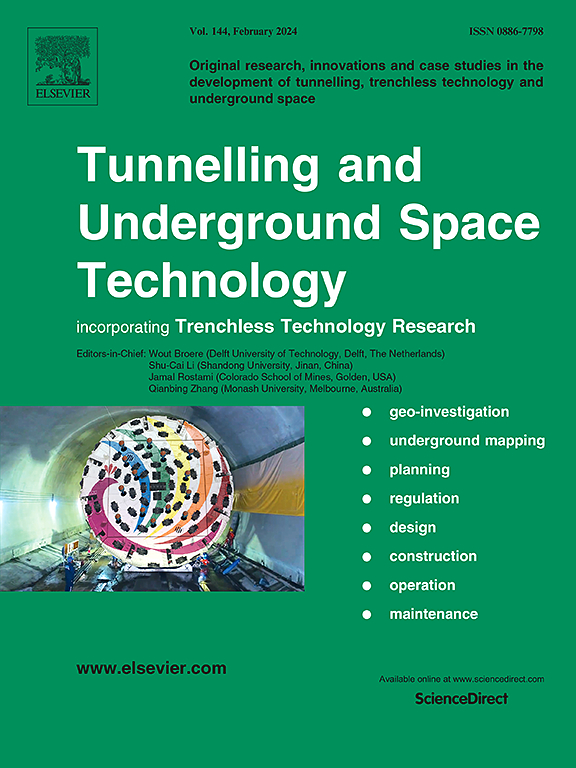Game engine-driven synthetic point cloud generation method for LiDAR-based defect detection in sewers
IF 6.7
1区 工程技术
Q1 CONSTRUCTION & BUILDING TECHNOLOGY
引用次数: 0
Abstract
3D point clouds acquired from emerging light detection and ranging (LiDAR) enable quantitative defect inspection for urban sewers. Defect detection of sewer point clouds is an essential step in deep-learning-based condition assessment; however, it faces challenges related to data scarcity. This study proposes a novel LiDAR simulation-based synthetic point-cloud data generation methodology driven by game engines, which addresses issues arising from geometric occlusions and the defect randomization. Evaluation experiments were conducted to validate the enhancement provided by the synthetic point clouds. The results indicated that the synthetic data significantly enhanced the accuracy of detecting corrosion and spalling defects by 17.90% and 4.69%, 15.22% and 11.69%, 15.56% and 15.21%, and 10.32% and 1.40% for 50, 100, 200, and 300 real scans, respectively. In addition, pre-trained models outperformed the widely used hybrid training approach, solving knowledge transfer between synthetic and real data. The proposed method alleviates data scarcity and contributes to automated defect segmentation in sewer point clouds.
基于游戏引擎的下水道激光雷达缺陷检测合成点云生成方法
从新兴的光探测和测距(激光雷达)获得的3D点云可以对城市下水道进行定量缺陷检测。污水点云的缺陷检测是基于深度学习的状态评估的重要步骤;然而,它面临着与数据稀缺相关的挑战。本研究提出了一种由游戏引擎驱动的基于激光雷达模拟的合成点云数据生成方法,该方法解决了几何遮挡和缺陷随机化引起的问题。通过评价实验验证了合成点云的增强效果。结果表明,在实际扫描50次、100次、200次和300次时,合成数据对腐蚀和剥落缺陷的检测精度分别提高了17.90%和4.69%、15.22%和11.69%、15.56%和15.21%、10.32%和1.40%。此外,预训练模型优于广泛使用的混合训练方法,解决了合成数据和真实数据之间的知识转移问题。该方法解决了数据的稀缺性问题,有助于实现污水点云的缺陷自动分割。
本文章由计算机程序翻译,如有差异,请以英文原文为准。
求助全文
约1分钟内获得全文
求助全文
来源期刊

Tunnelling and Underground Space Technology
工程技术-工程:土木
CiteScore
11.90
自引率
18.80%
发文量
454
审稿时长
10.8 months
期刊介绍:
Tunnelling and Underground Space Technology is an international journal which publishes authoritative articles encompassing the development of innovative uses of underground space and the results of high quality research into improved, more cost-effective techniques for the planning, geo-investigation, design, construction, operation and maintenance of underground and earth-sheltered structures. The journal provides an effective vehicle for the improved worldwide exchange of information on developments in underground technology - and the experience gained from its use - and is strongly committed to publishing papers on the interdisciplinary aspects of creating, planning, and regulating underground space.
 求助内容:
求助内容: 应助结果提醒方式:
应助结果提醒方式:


